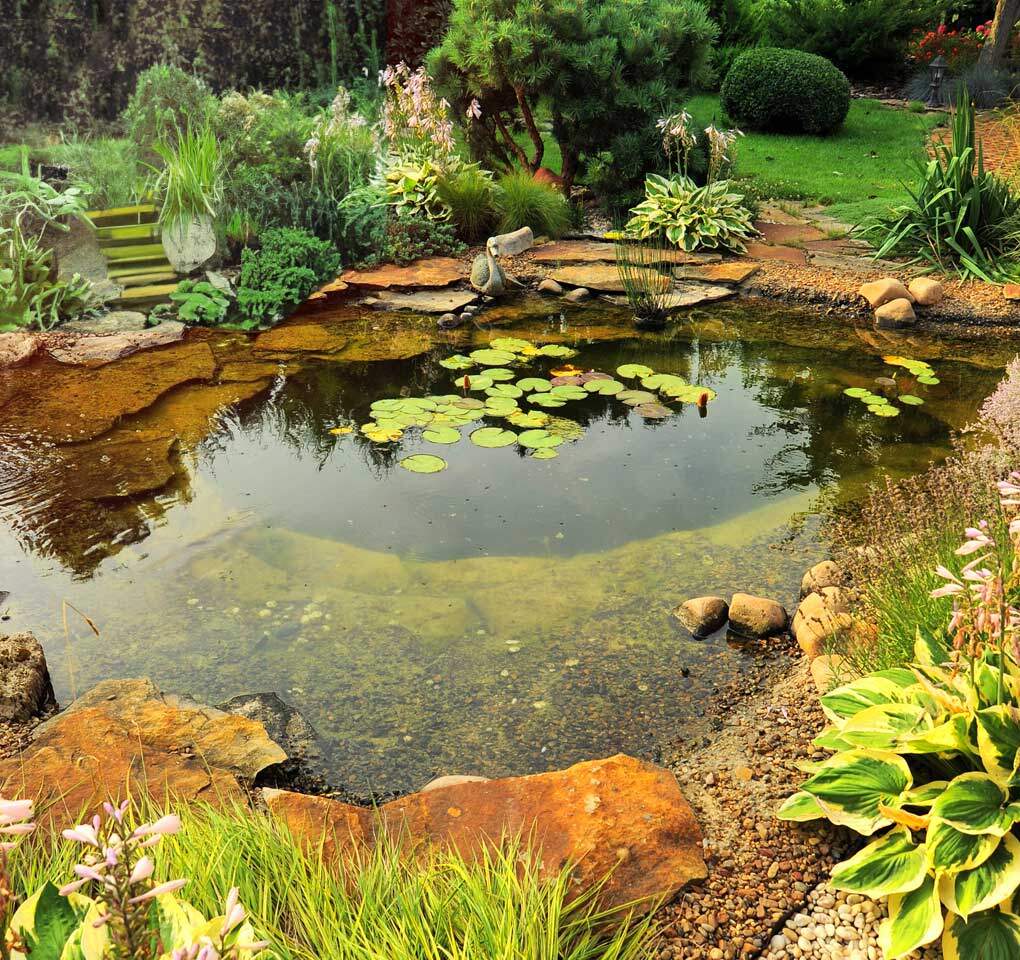Pond Odor: What Makes My Pond Stink?
You may have a beautiful pond but if it smells, that reduces the appeal greatly. That smell could be a warning that your pond has issues that can harm wildlife living in or near your pond water. If your pond has a smell that you don’t like, here are some common causes and ways to make your pond less stinky.
 Excess Algae Growth
Excess Algae Growth
Algae in your lake or pond when built up can be a large contributor to bad smells. When plants die and decompose, they reduce the oxygen supply that helps break down the organic waste. This reduction of oxygen results in more odor emanating from your lake or pond. If you have fish in your pond they too can be at risk if algae growth gets too dangerous levels.
Water Stagnation
If water is left with a lack of movement over time it may create a smell. When water doesn’t circulate algae and bacteria can grow. The bacteria begin to break down waste and develop carbon dioxide and hydrogen sulfide. When this happens, your pond will begin to smell like rotten eggs. This is an issue that mostly happens in the spring as the weather begins to warm up. Adding an aerator can help keep water moving and thereby reduce the smell of your lake or pond.
Sludge
Scum or sludge on the bottom of your pond can definitely create unwanted odors. In the fall, organic matter like leaves and runoff can sink to the bottom of your pond or lake and create buildup. A small amount of this matter is fine but when it gets too excessive amounts then a stinky lake or pond is the result. To reduce sludge from developing, performing yearly pond maintenance is recommended.
How to Stop Your Pond from Stinking
If your pond or lake smells, there is no quick fix. It takes a process to eventually get your pond back to being healthy. Your best bet is to call in a professional to help resolve any issue and help keep future issues from developing.
Pond Odor Remediation: Aeration Systems
A good place to start to end the smell in your pond is to add a pond aeration system. This will increase the oxygen level in the water. There are different types that will work for this issue.
Diffused Aeration Systems: these are the most cost-effective ways to remove stratification and increase oxygen levels of your body of water due to their high oxygen transfer rates, compared to fountains or pumps.
Industrial Aerators: these systems can be either above or below the surface, and their purpose is to aerate and move water, resulting in more oxygen and less stratification.
Fountains: for a more aesthetically pleasing look, a fountain can add beauty and healthy aeration to your body of water. Available in many different patterns, they improve various water quality issues, including low oxygen levels.
Pond Odor: Remove Causes of Organic Waste
When you remove organic waste, you help increase the oxygen levels in the water. This creates a healthier pond or lake while reducing smells. Some of the culprits that can make your pond smell are:
Excess Nutrients: When there is too much runoff or leaves that have blown into your water, these nutrient increases can cause a problem. Taking measures to help prevent this will help.
Algae: When you have algae build up it can be a large contributor to making your pond smell. If your water is prone to developing algae buildup, get help from pond maintenance experts at National Pond Service to help keep your pond healthy.





